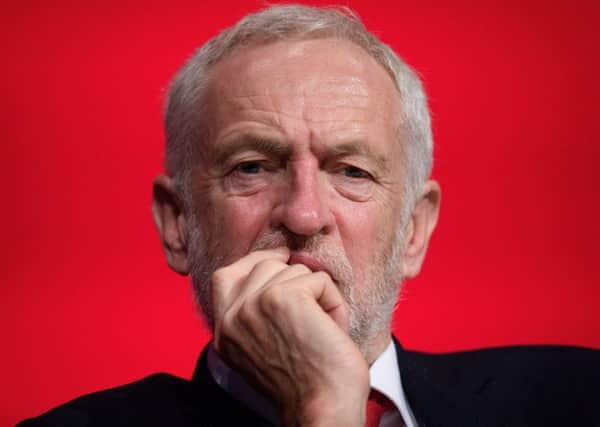Ian Swanson: Corbyn's correct not to say no to indyref2


There is, of course, much more up for debate in Liverpool than the EU and Scotland’s constitutional future. But the question of whether there should be a second referendum on either or both these issues is proving tricky.
A survey found the vast majority of the Labour rank and file wanted the party to back a “People’s Vote” on the final Brexit deal. And although the conference will vote today on a motion which leaves the door open to campaigning for that, the leadership remains hesitant, preferring a general election. And even if it did end up backing a new Brexit referendum, Shadow Chancellor John McDonnell has suggested the option to Remain is unlikely to be on the ballot paper. Meanwhile, Mr Corbyn said in an interview that if he became prime minister he did not rule out giving the Scottish Parliament the power to hold a second independence referendum.
Advertisement
Hide AdAdvertisement
Hide AdThat raised fears among Scottish Labour that the party could be portrayed as going soft on independence – fears immediately confirmed by Tory claims that Labour could not be trusted on the constitution.
Scottish Labour leader Richard Leonard attempted to clarify the position by saying the party would put opposition to another independence vote in the manifesto for the next UK election.
The argument is that such a pledge would give Mr Corbyn a UK-wide mandate to block any request for a fresh referendum.
But Mr Corbyn is surely right not to declare in advance that he would never agree to another vote on independence. The current distribution of powers under devolution means Holyrood cannot call a referendum without getting the approval of the UK Government, as Alex Salmond did in the Edinburgh Agreement he signed with David Cameron before the 2014 vote.
Advertisement
Hide AdAdvertisement
Hide AdWhen Nicola Sturgeon announced last year that she wanted to hold another referendum Theresa May famously adopted the mantra “Now is not the time” and refused even to discuss the matter.
As it turned out, Ms Sturgeon changed her plans after the SNP’s disappointing general election performance and so a potential showdown was averted.
But given what the Nationalists said in their manifesto at the last Holyrood election – that the Scottish Parliament should have the right to call another referendum “if there is a significant and material change in the circumstances that prevailed in 2014, such as Scotland being taken out of the EU against our will” – it is difficult to argue there is no mandate for another vote.
Mr Corbyn made clear that he is against independence and does not want there to be another referendum. But whatever the merits or otherwise of a fresh vote, he is wise not to issue a pre-emptive blanket veto.
Advertisement
Hide AdAdvertisement
Hide AdFor a UK prime minister – or an aspiring one – to declare in advance that she or he will refuse to contemplate a second independence referendum when the Scottish Government claims a mandate just plays into the SNP’s hands and risks a constitutional crisis.